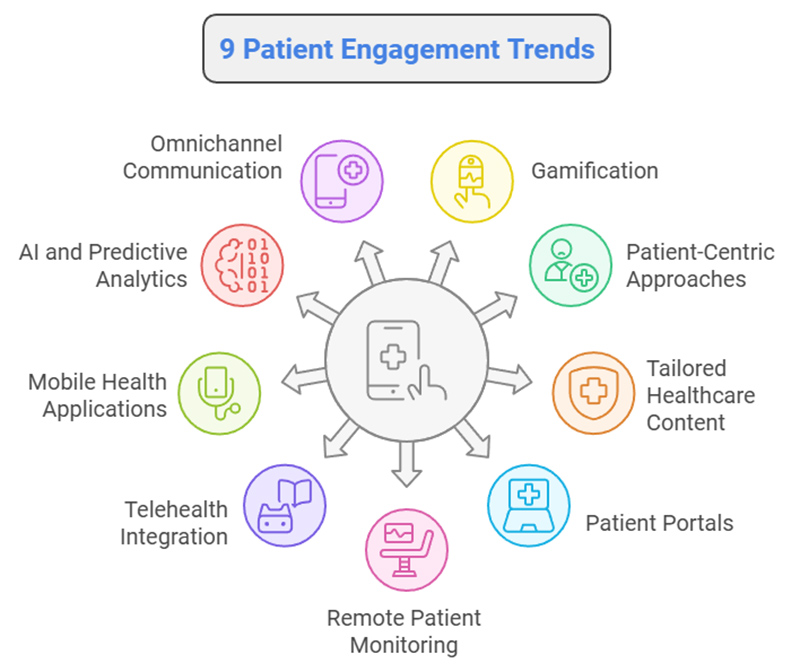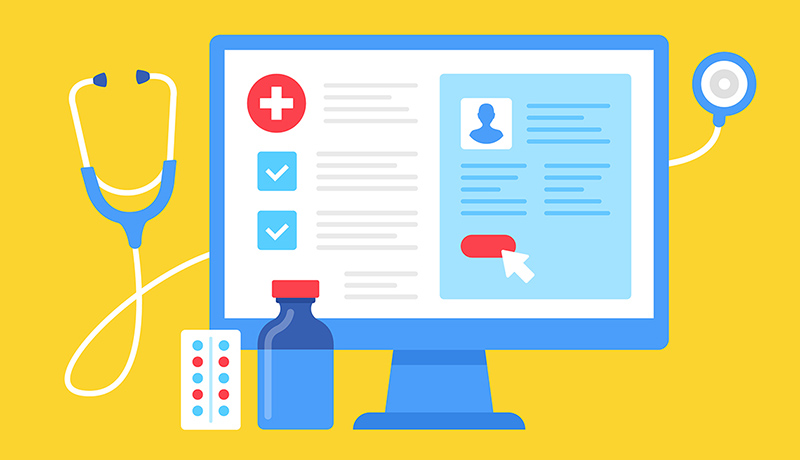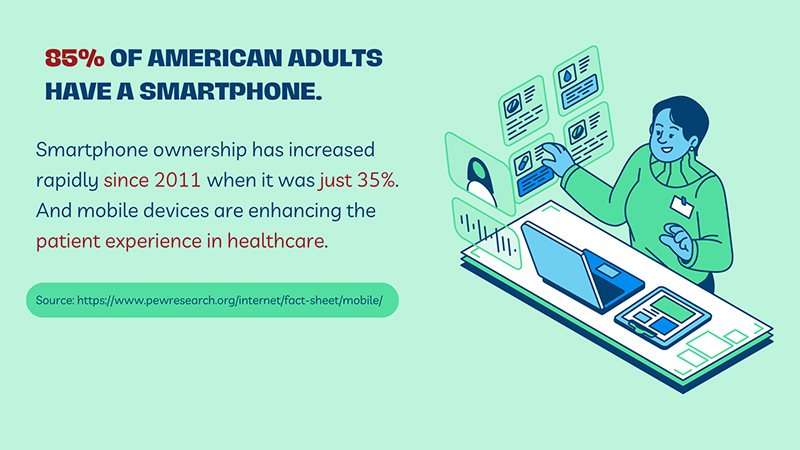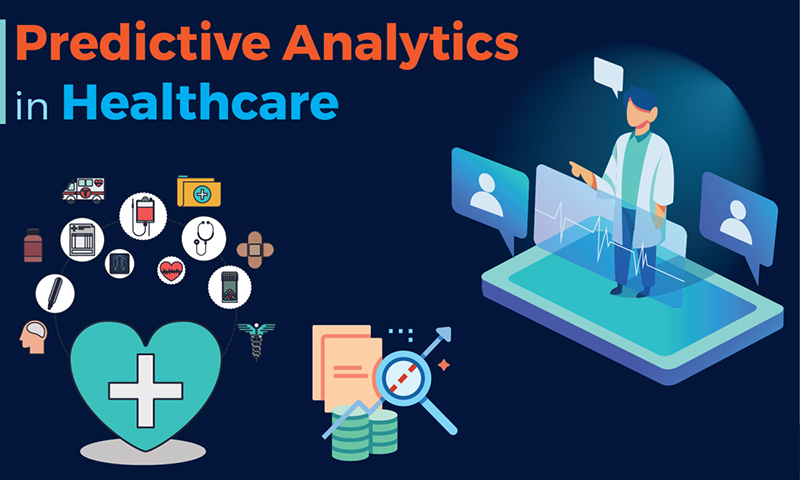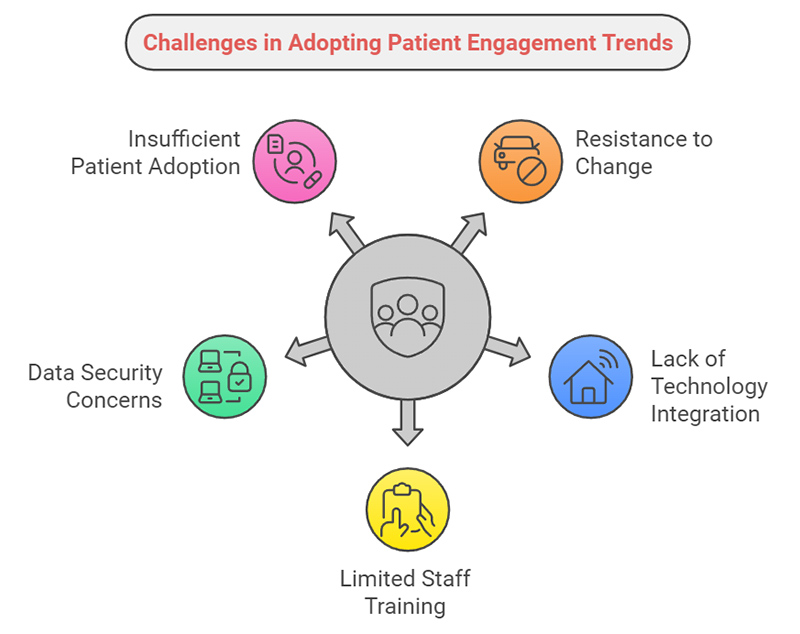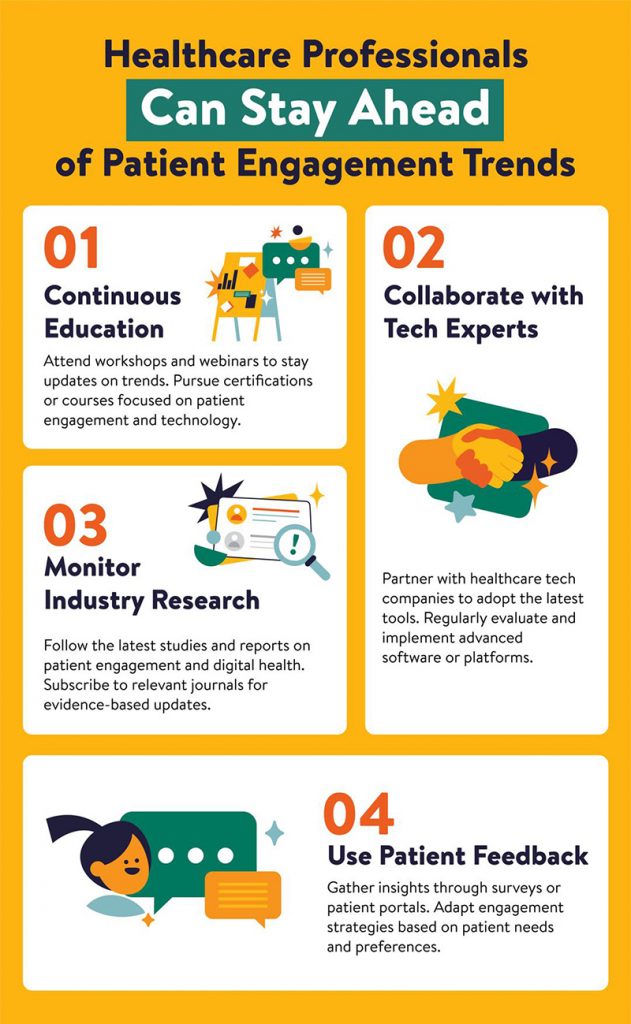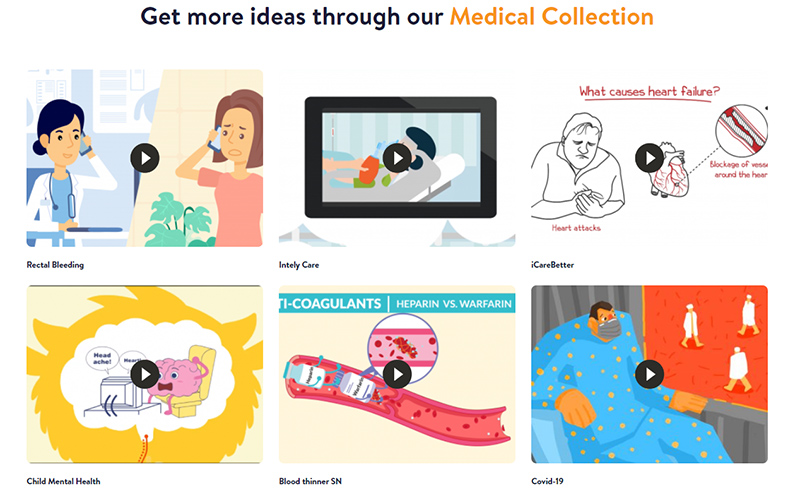In 2026, patient engagement trends are transforming radically – are you ready to keep up? This article uncovers 9 Rising Patient Engagement Trends that are shaping the future of healthcare, from cutting-edge technologies to evolving patient expectations.
Moreover, you will learn more about leveraging these trends to improve outcomes and stay competitive in a rapidly changing industry. Don’t miss out on these essential insights!
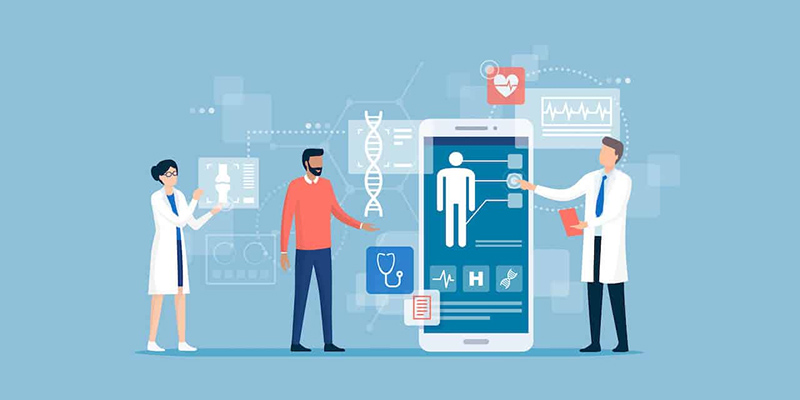
- 9 Key Patient Engagement Trends Shaping 2026
- 1. Gamification in Patient Engagement
- 2. Patient-Centric Approaches
- 3. Tailored Healthcare Content Takes the Lead
- 4. Patient Portals
- 5. Remote Patient Monitoring (RPM)
- 6. Telehealth Integration
- 7. Mobile Health (mHealth) Applications
- 8. Enhanced Use of AI and Predictive Analytics in Patient Care
- 9. Omnichannel Communication Approaches
- 5 Common Challenges and Opportunities in Adopting Patient Engagement Trends
- 4 Ways Healthcare Professionals Can Stay Ahead of Patient Engagement Trends
- Enhance Patient Engagement in 2026 with F.Learning Studio’s Animation Services
- Final Thoughts
9 Key Patient Engagement Trends Shaping 2026
Patient engagement trends are critical in improving patient satisfaction and fostering better healthcare experiences. When patients are actively involved in their care, they are more likely to adhere to treatment plans, leading to improved health outcomes and reduced hospital readmissions.
As patient expectations evolve, adopting the latest engagement trends ensures that healthcare providers can deliver personalized, effective care that aligns with today’s digital health landscape. Additionally, during the pandemic, 50% of healthcare consumers reported a decline in their health, highlighting the urgent need for effective patient engagement strategies.
Below, we explore in detail 9 key patient engagement trends that are shaping the future of healthcare.
1. Gamification in Patient Engagement
Description
Gamification incorporates game-like elements, such as rewards, progress tracking, and challenges, into healthcare experiences to make tasks more engaging. This approach motivates patients to adhere to their treatments, maintain healthy habits, and participate actively in their care.
Tools
Examples include Mango Health, which provides medication tracking with rewards, and SuperBetter, an app designed to support mental health through interactive challenges.
How to Apply
Develop gamified elements for existing healthcare apps, such as issuing badges for completing health goals or creating step-count challenges within wellness programs. Ensure the games are intuitive and provide meaningful rewards, such as health insights or progress reports.
Unlock the Power of Gamification for Patient Engagement!
Contact F.Learning Studio Today
2. Patient-Centric Approaches
Description
This approach focuses on tailoring healthcare delivery to meet the unique needs, preferences, and expectations of individual patients. It encourages shared decision-making and helps build trust between providers and patients.
Tools
Platforms like Salesforce Health Cloud or CipherHealth enable personalized patient interactions by organizing data and communication in one place.
How to Apply
Engage patients through surveys and regular feedback sessions to understand their needs. Train healthcare staff to incorporate patient preferences into care plans and ensure open, empathetic communication during consultations.
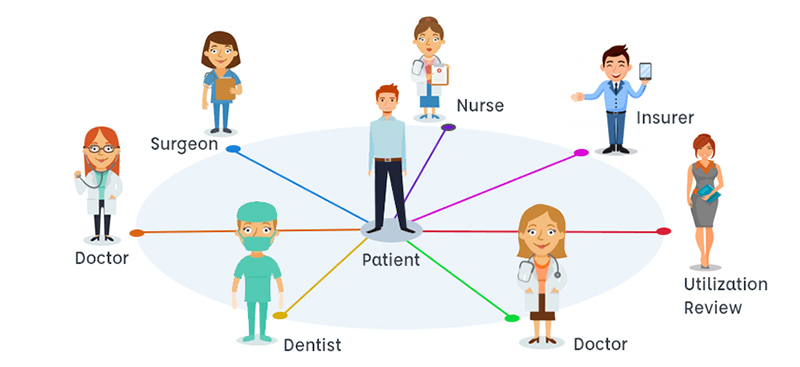
You may also interested:
3. Tailored Healthcare Content Takes the Lead
Description
Personalized educational content empowers patients to make informed decisions and effectively manage their conditions. Tailored information boosts engagement and comprehension, leading to better outcomes.
Tools
Platforms like Healthwise or Vivacare help create customized educational materials suited to specific patient demographics or conditions.
How to Apply
Segment your patient population and provide targeted content. For example, create easy-to-read infographics for senior patients about managing chronic conditions or develop interactive videos explaining complex treatments for younger audiences.

Furthermore, animated content integrates engaging visuals and clear audio explanations is an effective way to make complex medical concepts easier to understand while effectively catering to diverse learning styles.
For example, F.Learning Studio collaborated with Dr. Shin Shin Tang on a healthcare video production project (you can check video below) that simplifies the subject of mental health. Through storytelling, the animation visualizes real-life scenarios faced by patients with mental health symptoms, emotionally engaging the audience. Dr. Shin Shin was initially skeptical of animation as a medium but soon realized its power.
The motion pictures, with our combination of visuals and audio, serve as a highly effective training tool, demonstrating how one picture can convey the depth of a message, and enhance understanding and retention.
This approach showcases how animation can transform complex healthcare topics into impactful, relatable content, making it an ideal solution for improving patient engagement
4. Patient Portals
Description
Patient portals allow individuals to securely access their medical records, view test results, schedule appointments, and communicate with providers, empowering them to take control of their healthcare journey.
Tools
Popular tools include Epic MyChart, which integrates seamlessly with EHR systems, and AthenaHealth’s Patient Portal for enhanced usability.
How to Apply
Integrate a patient portal with your existing EHR system and ensure it’s mobile-friendly. Provide tutorials or webinars for patients to understand the portal’s features, and regularly update it with user-friendly functionalities.
5. Remote Patient Monitoring (RPM)
Description
RPM uses connected devices to monitor health metrics like blood pressure, glucose levels, and heart rates in real-time, allowing providers to intervene promptly when needed.
Tools
Devices such as AliveCor KardiaMobile for heart monitoring or Dexcom G6 for glucose management.
How to Apply
Choose devices suitable for your patient demographic. For instance, equip diabetes patients with glucose monitors that sync with a provider dashboard. Train patients on how to use the devices and interpret their data to ensure effectiveness.
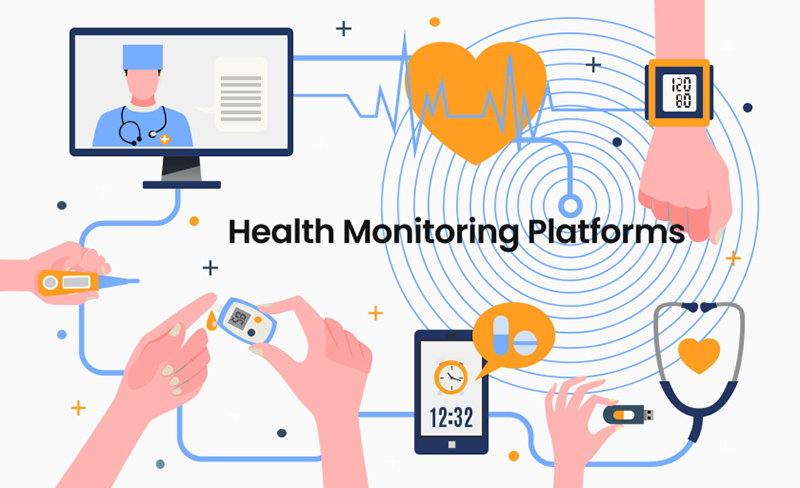
6. Telehealth Integration
Description
Telehealth enables patients to consult healthcare providers virtually, making access to care more convenient while reducing travel barriers and wait times.
Tools
Platforms like Teladoc Health, Amwell, and Doxy.me offer secure and efficient telehealth solutions.
How to Apply
Establish clear workflows for scheduling and conducting virtual consultations. Train providers in best practices for telehealth communication, and ensure all systems comply with HIPAA and other privacy regulations.
7. Mobile Health (mHealth) Applications
Description
mHealth apps give patients direct access to tools for symptom tracking, medication management, and lifestyle monitoring, fostering self-care and engagement.
Tools
Apps such as MyFitnessPal for nutrition tracking or Medisafe for medication reminders.
How to Apply
Recommend reliable mHealth apps tailored to patient needs. For example, provide fitness tracking apps for patients working on weight management or mental health apps for those seeking emotional well-being support.
8. Enhanced Use of AI and Predictive Analytics in Patient Care
Description
AI and predictive analytics help identify at-risk patients, forecast potential complications, and personalize care plans based on patterns in health data.
Tools
Solutions like Merative L.P., formerly IBM Watson Health and predictive analytics platforms such as Health Catalyst.
How to Apply
Implement AI-powered tools to streamline diagnoses or treatment recommendations. Train healthcare teams to interpret data outputs effectively and use insights for early intervention strategies.
9. Omnichannel Communication Approaches
Description
Omnichannel communication ensures patients receive consistent and personalized messages across various channels, such as email, SMS, and social media.
Tools
Platforms like Twilio for automated messaging and Hootsuite for managing healthcare social campaigns.
How to Apply
Develop a multi-channel strategy where each platform serves a distinct purpose. For example, use SMS for reminders, email for detailed follow-ups, and social media to promote health awareness campaigns. Ensure that messaging across all channels is cohesive and aligns with the patient’s journey.

5 Common Challenges and Opportunities in Adopting Patient Engagement Trends
Adopting patient engagement trends brings both significant potential and notable hurdles. These challenges often arise as healthcare organizations aim to enhance the patient experience while integrating advanced technologies, innovative strategies, and personalized care approaches.
However, with these challenges come opportunities to redefine healthcare delivery and improve patient outcomes.
| Challenges | How to Overcome |
Resistance to Change | – Engage stakeholders early by educating them on the benefits. – Provide training and support to ease the transition. – Start with small, manageable changes before implementing larger strategies. |
| Lack of Technology Integration | – Invest in interoperable digital tools that integrate seamlessly with existing systems. – Work with IT providers to ensure systems are scalable and adaptable to future advancements. |
| Limited Staff Training and Awareness | – Regularly train healthcare providers on patient engagement technologies and trends. – Provide ongoing education to ensure all staff members are on board with the new strategies. |
| Data Security Concerns | – Implement robust cybersecurity measures, such as encryption and multi-factor authentication. – Educate both patients and staff on best practices for data security. |
| Insufficient Patient Adoption | – Use user-friendly interfaces and provide tutorials to help patients navigate digital tools like portals or apps. – Offer incentives or rewards for patients who engage with the tools regularly. |
4 Ways Healthcare Professionals Can Stay Ahead of Patient Engagement Trends
Staying ahead of patient engagement trends for 2026 requires proactive adaptation to emerging technologies and strategies. Let’s explore 4 actionable ways healthcare professionals can elevate patient engagement and drive better outcomes in 2026 in the image below.
Enhance Patient Engagement in 2026 with F.Learning Studio’s Animation Services
We Enhance Patient Engagement with Tailored Content
At F.Learning Studio, we believe in the power of personalized content to improve patient engagement. We work closely with healthcare providers to develop animations that address the unique needs of their patient populations.
Whether simplifying medical procedures, explaining treatment options, or promoting healthy lifestyle changes, our tailored content ensures that each animation speaks directly to the target audience. By considering factors like demographics, cultural nuances, and specific health conditions, we create relevant, patient-friendly content that enhances understanding and encourages active participation in healthcare decisions.
Feel free to explore our portfolio to see the difference!
For example, a video in a nurse training course by Simple Nursing demonstrates how our tailor 2D medical animations can make learning more engaging and memorable. Unlike traditional, text-heavy materials, these animations transform what could be a dry, tedious training session into a lively and enjoyable learning experience.
We used humor and clear visuals, so the animation keeps the learners’ attention and simplifies complex concepts, such as how to apply medication and key tips for remembering critical information about blood thinners.
We Leverage Gamification to Boost Patient Engagement and Satisfaction
Gamification is a powerful tool for enhancing patient engagement, and at F.Learning Studio, we incorporate interactive elements into our animations to make learning more enjoyable and effective. Rather than building complex games, we focus on adding engaging features like quizzes, challenges, and progress trackers.
These elements not only keep patients engaged but also encourage them to take an active role in their healthcare journey.
For example, interactive quizzes can help reinforce key concepts, while progress trackers motivate patients to stick to their treatment plans.
We Combine Patient-Centric Approaches with Cost-Efficient Solutions
With patient-centric approaches and efficient production methods, we deliver high-quality animations that align with the specific needs and goals of healthcare providers, all while keeping costs manageable. We understand that healthcare organizations face budget constraints, so our team works diligently to create engaging and informative content without compromising on quality.
This balance of personalization, innovation, and affordability ensures that healthcare providers can enhance patient engagement and satisfaction, all while maintaining financial sustainability.
Still not sure which is the best option for your current budget?
You may also interested: Medical Animation Cost: 10 Essential Things to Know in 2026
Final Thoughts
In 2026, patient engagement trends are transforming the healthcare landscape by integrating innovative solutions that empower patients to take control of their health. These advancements not only improve patient satisfaction but also contribute to better health outcomes by making healthcare more accessible, interactive, and enjoyable.
As these trends continue to evolve, healthcare organizations need to act quickly to stay competitive and meet patients’ growing expectations. This is where F. Learning Studio can help. Our cutting-edge animation services and patient engagement solutions are designed to deliver customized, interactive content that fosters stronger connections with patients.
Don’t wait – contact us today to revolutionize how you engage with patients and enhance their healthcare experience!
- Email: [email protected]
- Fanpage: https://www.facebook.com/f.learningstudio
- Website: https://flearningstudio.com/
- LinkedIn: https://www.linkedin.com/company/f-learning-studio/
Read more:
- 4 Patient Education Strategies that Promote Patient Engagement
- The 4 Types of Patients You’ll Care for As A Communication Manager
- Addressing Patients’ Unmet Needs: Enhancing Access to Healthcare
interested to know more?
Glad you like us! Book a consultation call with us to explore how to kick start your animation project.

Sean Bui, the founder and creative director of F.Learning Studio, is a respected leader in the e-learning and multimedia production industry. With over 10 years of experience, he has dedicated his career to helping organizations create engaging and impactful learning experiences.
Under his leadership, F.Learning Studio has grown into a trusted partner for organizations in the education, healthcare, and corporate training sectors, producing over 2,000 minutes of educational animation.


